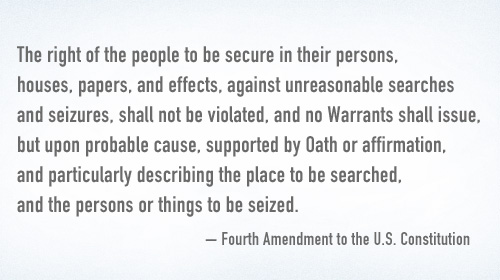Why is Immigration & Customs Enforcement Still Fighting For Its Runaway Detainer Regime?


Ada Morales, a long-time resident of Rhode Island, became a naturalized U.S. citizen in 1995. Yet in 2009, when she was arrested by Rhode Island authorities for an unrelated state charge, Immigration and Customs Enforcement issued an immigration hold, or "detainer," against her. Explaining that an "investigation had been initiated" to determine her immigration status, ICE asked the Rhode Island authorities to keep her in jail even after her local custody ended.
ICE did this without ever talking to Ms. Morales or giving her a chance to contest her detention. When a state judge ordered her released from Rhode Island custody, Ms. Morales was rebooked, strip-searched, and held in a jail cell for an additional 24 hours based on the detainer alone. It wasn't until the next day when ICE agents interviewed her that they confirmed she was a U.S. citizen and let her go home.
Shockingly, this was not the first time Ms. Morales has been the target of a baseless immigration hold by ICE. The same thing happened to Ms. Morales just five years earlier, in 2004. That time, too, ICE issued a detainer against her, took her into federal custody, and then acknowledged that she was a U.S. citizen and let her go.
How could ICE make this same mistake twice?
Simple: ICE's practice was to issue detainers without even minimal investigation into whether the targets were non-citizens subject to deportation. ICE could easily have checked Ms. Morales's citizenship in its files or clarified things simply by asking her. Instead, ICE detained her first and asked questions later.
Shaken by her ordeal, Ms. Morales decided to sue immigration officials to make sure this didn't happen again.
Morales v. Chadbourne, filed by the ACLU on behalf of Ms. Morales, is a landmark case challenging the unlawful detention of a U.S. citizen on an immigration detainer. This week, the ACLU will go before the U.S. Court of Appeals for the First Circuit to defend the district court's decision that ICE's detention of Ms. Morales violated her constitutional rights. At stake is a fundamental issue: May immigration officials detain a person in jail while they figure out whether there is any basis for the detention in the first place?
The answer is clearly no. It is a basic Fourth Amendment rule that the government cannot imprison you without "probable cause" to believe you did something wrong. In other words, you can't be held in jail just because the government wants to "initiate" an investigation and see if there's any reason to hold you.
That's why, in February, the federal district court in Rhode Island rejected ICE's efforts to have the suit dismissed. The district court clearly got it right. In fact, on the same day that President Obama took executive action on immigration just a few weeks ago, DHS Secretary Jeh Johnson issued a memo announcing significant new limits on ICE's overbroad use of detainers. Although there are still serious questions about how Johnson's memo will be implemented, it may signal a long overdue end to the sort of detainer abuse that Ms. Morales experienced. And notably, Johnson's memo cited the district court's decision in Morales as one of "the increasing number of federal court decisions that hold that detainer-based detention by state and local law enforcement agencies violates the Fourth Amendment."
But ICE apparently didn't get the memo. ICE's detainer practices have flouted the Fourth Amendment for years, and in the Morales case, ICE wants the appeals court to give it a green light to continue violating this basic civil liberty. In its appeal of the district court's ruling, ICE has asked the First Circuit to overturn the district court's decision and hold that it was reasonable for them to have a U.S. citizen jailed, without ever talking to her, simply to initiate an investigation into what her immigration status might be.
That's an extraordinary claim, and it's contrary to decades of Fourth Amendment decisions.
Ms. Morales's case is a prime example of the worst excesses of a runaway detainer regime that DHS Secretary Johnson now says is ending. Yet ICE's arguments in Morales v. Chadbourne suggest the opposite. It may take a decision from the First Circuit to confirm what numerous courts and now the head of DHS itself have recognized: The Constitution doesn't allow the government to lock people up first and figure out the reason later.
Learn more about immigration and customs enforcement and other civil liberties issues: Sign up for breaking news alerts, follow us on Twitter, and like us on Facebook.

